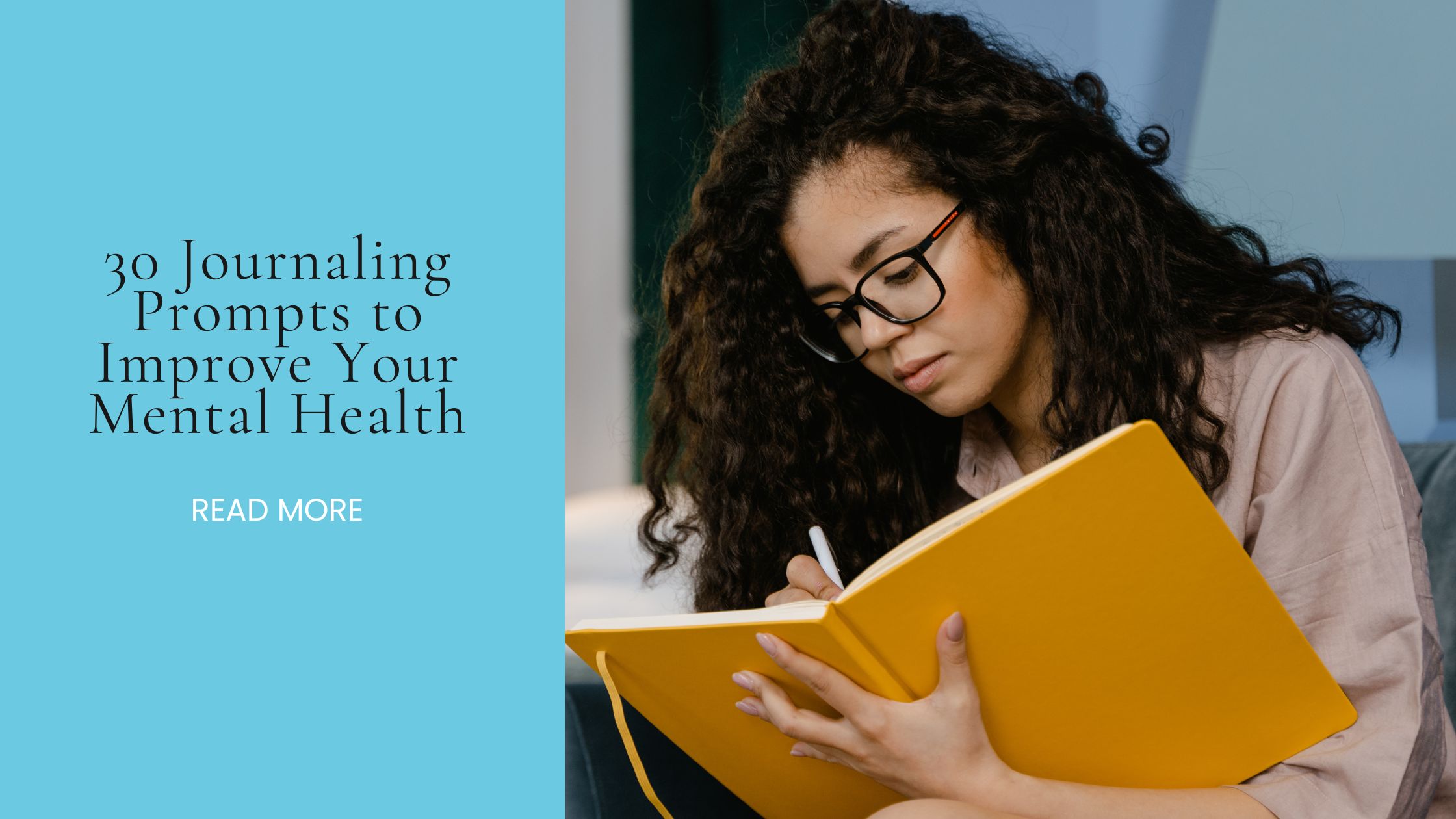30 Journaling Prompts to Improve Your Mental Health

Taking just a few minutes each day to write in a daily journal can be a transformative act of self-care. Journaling gives you space to process emotions, uncover patterns in your thoughts, and practice gentle self-expression. Whether you’re navigating a tough time or simply seeking more inner clarity, guided writing through thought-provoking questions can support your journey toward greater emotional well-being.
This curated list of prompts is designed to support self-exploration, encourage mindfulness, and promote habits like gratitude writing, which studies have shown can significantly improve mood and reduce stress.
How to Use These Prompts
Start by choosing one prompt each day, or pick whichever resonates most in the moment. There’s no wrong way to journal—just write honestly and consistently. These prompts are meant to support reflection, growth, and anxiety relief, not perfection.
30 Journaling Prompts for Mental Health
- What emotion did I feel most today, and why?
- What am I grateful for right now, no matter how small?
- When do I feel most like myself?
- What’s a thought I need to let go of?
- What’s something I wish others understood about me?
- What does self-acceptance mean to me today?
- What habits help my emotional well-being?
- How can I show myself more compassion?
- Describe a time I overcame something difficult. How did I do it?
- What do I need more of in my life right now?
- What’s one thing I’m proud of myself for?
- What’s causing me stress—and what’s one way I can reduce it?
- Who makes me feel safe and supported? Why?
- Write about a place where I feel calm and grounded.
- What does healing look like for me?
- List 5 things that always make me smile.
- What’s one thing I’ve learned about myself this year?
- How do I want to feel tomorrow—and what will help me feel that way?
- What’s one fear I can face this week?
- When was the last time I felt truly at peace?
- What would I say to my younger self right now?
- What boundaries do I need to protect my emotional well-being?
- What’s one part of myself I want to understand better?
- Describe my ideal morning routine for anxiety relief.
- What does self-expression look like in my life?
- How has gratitude writing changed my perspective?
- What do I love most about who I am becoming?
- What negative self-talk do I want to challenge today?
- What are three things I can do to take care of my mental health this week?
- Write a letter of encouragement to your future self.
Next Steps: Building a Journaling Habit
If you’re new to journaling, don’t feel pressured to write a full page every time. Start small—just five minutes a day can make a difference. Choose a quiet time, perhaps after your morning coffee or before bed, to ground yourself with one prompt.
Here are a few tips to make journaling stick:
- Keep your journal visible. Leave it on your nightstand or desk as a visual cue.
- Pair journaling with another habit. For example, journal right after brushing your teeth.
- Use a timer. Set a 5- or 10-minute timer to reduce pressure and create structure.
- Revisit old entries. Reflecting on your growth reinforces your progress and builds motivation.
Make your journaling space feel inviting and judgment-free—this is for you, not anyone else.
Final Thoughts
Journaling is one of the simplest yet most effective tools for supporting mental health. Through consistent use of these mindfulness prompts and thought-provoking questions, you’ll uncover insights, foster self-acceptance, and move forward with clarity. Whether you’re looking to ease anxiety, deepen your self-exploration, or simply find your voice again, your daily journal can become a space of true healing and reflection.
Your story is unfolding—write it with care.
FAQ
How can journaling help my mental health?
Journaling allows you to process emotions, reduce stress, and gain insight into your thoughts and behaviors.
How often should I use journaling prompts?
Daily use is ideal, but even a few times a week can offer benefits. The key is consistency over perfection.
What if I don't know what to write?
Start with the prompt that speaks to you most. There’s no wrong way to journal—just begin with honesty.
Do I need a special journal to start?
Nope! Any notebook will do. What matters is creating a space that feels safe and personal for your writing.
Can journaling reduce anxiety?
Yes, studies show that reflective writing can lower anxiety by promoting mindfulness and emotional regulation.
Is it okay to skip days when journaling?
Absolutely. Life happens! The goal is progress, not perfection. Even occasional journaling can be beneficial over time.
How long should I spend on each journaling session?
Just 5–10 minutes a day can make a difference. Focus on quality and honesty rather than length.
Can journaling make me feel worse by focusing on negative emotions?
It’s normal to feel emotional while journaling, but expressing those feelings can be a healthy release and lead to healing over time.